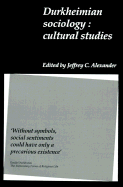Book contents
- Frontmatter
- Contents
- List of contributors
- Acknowledgements
- Introduction: Durkheimian sociology and cultural studies today
- Social change and sacralization
- 1 The sacred and the French Revolution
- 2 From Durkheim to Managua: revolutions as religious revivals
- 3 The Liminal fight: mass strikes as ritual and interpretation
- Micro and macro in symbolic context
- Ritualization and public life
- Index
3 - The Liminal fight: mass strikes as ritual and interpretation
Published online by Cambridge University Press: 05 July 2011
- Frontmatter
- Contents
- List of contributors
- Acknowledgements
- Introduction: Durkheimian sociology and cultural studies today
- Social change and sacralization
- 1 The sacred and the French Revolution
- 2 From Durkheim to Managua: revolutions as religious revivals
- 3 The Liminal fight: mass strikes as ritual and interpretation
- Micro and macro in symbolic context
- Ritualization and public life
- Index
Summary
Durkheim's legacy is a rich one. It is a tribute to the power of his legacy that it manifests itself in the style and logic of scholars who feel little need for explicit citation of his work. Edward Shils, Mary Douglas, Clifford Geertz, and Victor Turner obviously work under Durkheim's influence without need for either reference or discussion. For these writers and their readers, Durkheimian logic is completely unproblematic. It can be taken for granted.
But taken-for-granted knowledge is always partial knowledge; some re-problematization of Durkheim's legacy is past due. Durkheimian logic cannot be taken for granted in contemporary analyses of economics, power, conflict, or practical affairs. There are exceptions, of course. One thinks here, especially, of Mary Douglas' work on risk and commodities and of Marshall Sahlins' work on “practical reason” (Douglas and Isherwood [1979]; Douglas and Wildavsky 1982; Sahlins 1976). The present chapters continue these theoretical openings. I will bring Durkheimian logic to bear on a key episode of social conflict, and I hope I will do so in distinctive ways.
First, in the course of this chapter I will explicate and extend Turner's concept of “liminality.” In so doing I pull Turner more explicitly back into the Durkheimian tradition, correct certain shortcomings in the concept, and extend its empirical scope. Turner's (1977 [1969]) use of liminality and the structure/anti-structure pair, I suggest, echoes Durkheim's (1965 [1912]) insistence that there must be periodic celebrations of social solidarity and the division between sacred and profane.
- Type
- Chapter
- Information
- Durkheimian SociologyCultural Studies, pp. 66 - 90Publisher: Cambridge University PressPrint publication year: 1988
- 13
- Cited by

